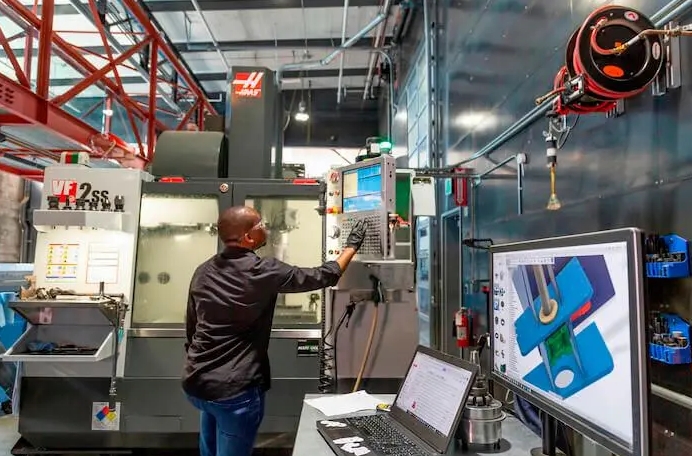Optimizing Processes: Enhancing Quality Control in Metal Fabrication+ View more
Optimizing Processes: Enhancing Quality Control in Metal Fabrication
+ View more
Date:2023-12-18 17:36
Quality control stands as a linchpin in the realm of metal fabrication, ensuring that precision, reliability, and consistency remain the pillars of manufacturing excellence. In a landscape marked by technological advancements and increasing demands for high-quality products, the enhancement of quality control processes emerges as a strategic imperative.

Importance of Quality Control in Metal Fabrication
Quality control within metal fabrication embodies the ethos of perfection. It's not merely a checkpoint but a comprehensive approach encompassing every stage of fabrication, from material selection to the final inspection. This holistic approach aims to identify defects, maintain tolerances, and guarantee compliance with stringent industry standards.
Advanced Inspection Techniques and Tools
The evolution of inspection techniques has witnessed a paradigm shift in ensuring quality. From traditional calipers and micrometers to state-of-the-art Coordinate Measuring Machines (CMMs) and non-destructive testing methods like ultrasonic and X-ray inspections, the arsenal of inspection tools has expanded, enabling more accurate and efficient quality assessments.
Process Optimization for Quality Assurance
Optimizing processes plays a pivotal role in enhancing quality control. Implementing Six Sigma methodologies, Statistical Process Control (SPC), and Lean manufacturing principles streamlines workflows, minimizes variability, and mitigates defects. This proactive approach not only improves product quality but also enhances overall efficiency and cost-effectiveness.
Real-Time Monitoring and Data-Driven Decisions
Real-time monitoring using advanced sensors and Internet of Things (IoT) technology revolutionizes quality control. These systems collect vast amounts of data throughout the fabrication process, enabling instant analysis and proactive intervention. Machine learning algorithms and AI-driven analytics further empower manufacturers to predict and prevent potential quality issues.
Human Element and Training
Despite technological advancements, the human element remains crucial in quality control. Skilled operators and inspectors are the backbone of effective quality assurance. Continuous training and upskilling programs ensure that personnel stay abreast of the latest technologies and methodologies, contributing significantly to maintaining impeccable quality standards.
Integration of Quality Control in Industry 4.0
The fourth industrial revolution, Industry 4.0, integrates quality control seamlessly into the manufacturing ecosystem. Smart factories equipped with interconnected systems, digital twins, and predictive maintenance mechanisms ensure that quality is not merely checked but is inherently built into the production processes, fostering a culture of continuous improvement.
Conclusion
In conclusion, the pursuit of enhanced quality control in metal fabrication is an ongoing journey marked by innovation, precision, and a commitment to excellence. Embracing advanced inspection techniques, process optimization, real-time monitoring, and a harmonious fusion of human expertise with cutting-edge technology establishes a robust foundation for unparalleled quality assurance.
Quality control in metal fabrication isn't just a phase; it's an integrated approach ingrained in the very DNA of modern manufacturing. Its evolution and refinement signify a relentless dedication to delivering products that epitomize precision and reliability in an ever-evolving industrial landscape.
Share to:
Recommend wonderful blog posts

